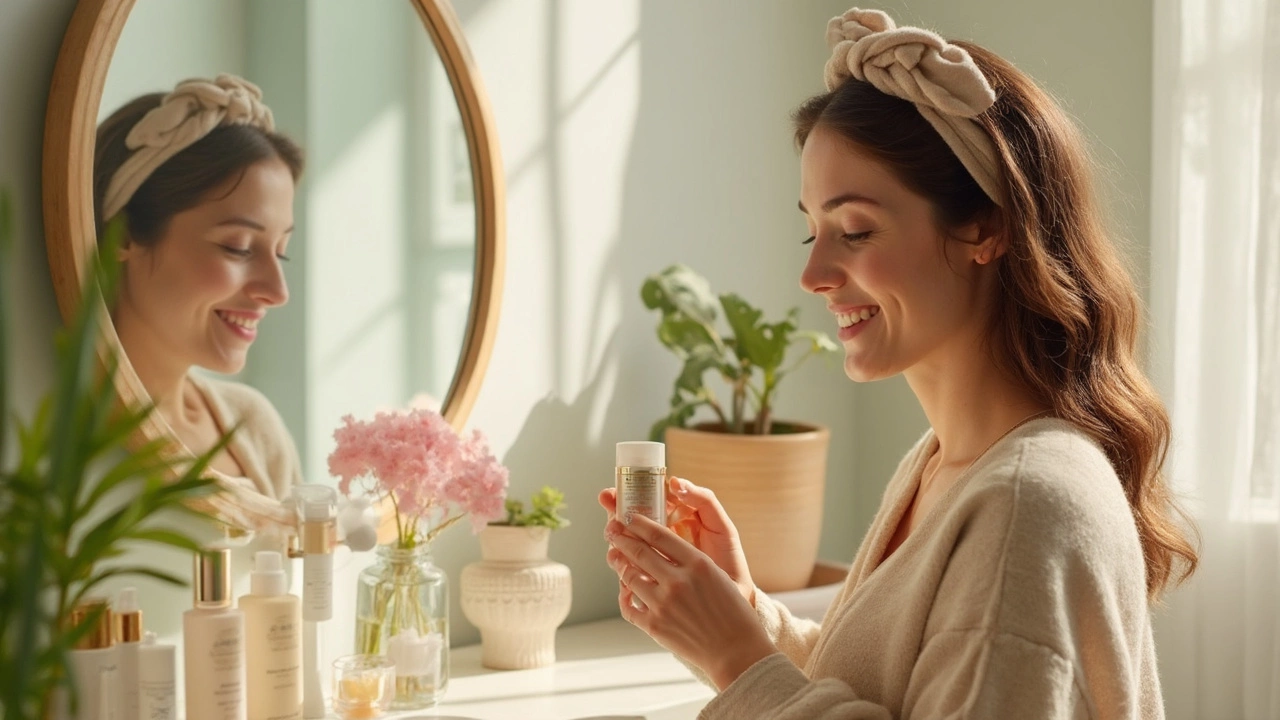How to Build a Skincare Routine: A Beautician's Guide
In the world of beauty, knowing how to build a skincare routine can be the difference between a glowing complexion and a lackluster one. As a beautician, you not only care for your skin but also guide clients on their skincare journeys. This comprehensive guide will equip you with the knowledge to create personalized skincare routines that cater to individual needs.

Understanding Skin Types
Before diving into product selection, its crucial to understand the different skin types. Each skin type has unique characteristics and requires specific care. Heres a brief overview:
- Oily Skin: Prone to acne and enlarged pores, requires balancing products.
- Dry Skin: Lacks moisture, often feels tight and flaky, needs hydrating products.
- Combination Skin: Oily in the T-zone and dry elsewhere, benefits from targeted treatments.
- Sensitive Skin: Easily irritated and prone to redness, requires gentle, soothing products.
Knowing your client's skin type allows you to tailor a routine that addresses their specific concerns and goals. For more insight on sensitive skin, check out our article on clothing choices for sensitive skin.
The Core Steps of a Skincare Routine
A basic skincare routine typically includes cleansing, toning, moisturizing, and sun protection. However, as a beautician, you can introduce additional steps to enhance results.
Step 1: Cleansing
Cleansing is the foundation of any skincare routine. It removes dirt, oil, and makeup, preparing the skin for subsequent products. For those with oily or combination skin, a gel-based cleanser can help control excess sebum. For dry or sensitive skin, opt for a cream-based or hydrating cleanser. Learn more about why double cleansing is necessary for a deeper clean.
Step 2: Toning
Toners help balance the skin's pH and remove any residual impurities left after cleansing. They also prepare the skin to better absorb moisturizers and serums. Choose an alcohol-free toner to avoid drying out the skin.
Step 3: Moisturizing
Moisturizing is essential for all skin types. It helps lock in hydration and strengthens the skin barrier. For oily skin, a lightweight, non-comedogenic moisturizer is ideal, while dry skin benefits from a richer formula.
Step 4: Sun Protection
Sun protection is non-negotiable. A broad-spectrum SPF of at least 30 should be applied daily, regardless of the weather. Sunscreen prevents premature aging and protects against harmful UV rays.
Advanced Skincare Techniques
For clients seeking more advanced skincare, consider incorporating serums, exfoliants, and masks into their routines.
Serums
Serums are concentrated treatments formulated to target specific concerns like aging, pigmentation, or dehydration. A vitamin C serum can brighten the skin, while hyaluronic acid offers deep hydration.
Exfoliation
Exfoliating helps remove dead skin cells, promoting cell turnover and revealing brighter skin beneath. Use a gentle exfoliant once or twice a week. For a detailed guide, explore our article on how to exfoliate without damaging skin.
Masks
Masks provide an intense boost of nutrients and can be tailored to specific skin concerns. Clay masks are great for oily skin, while hydrating masks can benefit dry skin.
Customization and Consistency
Every client's skin is unique, and their skincare routine should reflect that. Customize routines based on their skin type, concerns, and lifestyle. Encourage consistency, as regular use of products is key to seeing results over time.
Keeping Up with Skincare Trends
As a beautician, staying informed about the latest skincare trends is crucial. Whether it's the rise of natural oils or the effectiveness of new ingredients, being knowledgeable allows you to offer informed recommendations. Read about the layering of serums and skincare products to stay updated.

Frequently Asked Questions
How often should I update my client's skincare routine?
It depends on their skin's needs and any changes in their skin type or concerns. Reassess their routine every few months or if they notice any significant changes.
Can all skin types use the same products?
While some products are suitable for multiple skin types, it's best to tailor products to address specific needs and conditions of the client's skin.
Are natural products better for the skin?
Natural products can be beneficial, especially for sensitive skin. However, it's important to evaluate each product based on its ingredients and efficacy. Discover the best natural oils for face to recommend.
Building a skincare routine is both an art and a science. With a solid understanding of skin types and the right products, you can create a routine that enhances your client's natural beauty. For more tips and advice, explore resources like the Boots skincare advice.
This article contains affiliate links. We may earn a commission at no extra cost to you.

